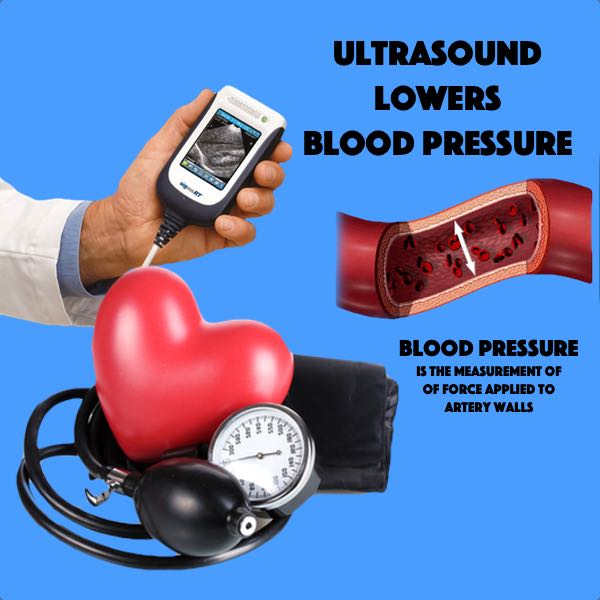High blood pressure is one of the most difficult medical conditions to control. Although it’s very common — 1 in 3 Americans have it — one-third of those who do have it cannot control their pressure with less than four medications.
A team of Japanese researchers may have found a solution. In a new study, they showed that applying ultrasound to a patient’s forearm resulted in significantly lower blood pressure.
Their study involved 212 patients who had both diabetes and treatment-resistant high blood pressure.
They were divided into four groups. The first group received 20 minutes of low-frequency, low-intensity ultrasound applied to their forearms. Another group received 20 minutes of ultrasound at a higher frequency. The other two groups were used as controls, and received a placebo treatment.
The researchers found that either amount of ultrasound significantly reduced the blood pressure of the participants.
The placebo treatment also lowered the blood pressure in the control groups, but to a lesser degree. Those receiving the ultrasound — but not the inactive treatment — also had lower pulse rates.
The researchers don’t know why the ultrasound has this effect, but they theorize that applying it may suppress the body’s sympathetic nervous system, which is the mechanism that governs our “fight-or-flight” response when we’re under stress.
When the body perceives that we are under stress, it responds by hiking our pulse rate and our blood pressure, giving us the ability to either fight or flee.
If this response is suppressed, the body responds with lower blood pressure and pulse rate.
More research is needed to confirm that it is the ultrasound that is making the difference.

